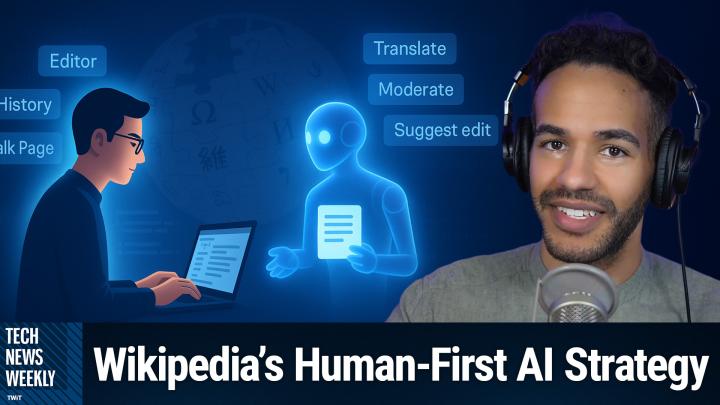Wikipedia’s AI Strategy: Supporting Humans, Not Replacing Them
AI generated, human edited.
As artificial intelligence continues to disrupt every corner of the internet, the Wikimedia Foundation is carving a unique path—one that puts people at the center. On Tech News Weekly, Mikah Sargent spoke with Leila Zia, Head of Research at the Wikimedia Foundation, to explore Wikipedia’s new AI strategy. Rather than chasing automation for automation’s sake, the organization is focused on using AI as a tool to support its vast global network of volunteer editors.
The strategy outlines four key areas where AI will play a role. First, AI will assist moderators and patrollers in handling repetitive tasks that don’t require human judgment, such as identifying vandalism or locating outdated references. Second, the Foundation aims to reduce friction for editors by using AI to automate low-value, repetitive work, freeing contributors to focus on more meaningful and complex edits. Third, AI-assisted translation will help surface important content across Wikipedia’s 300+ language editions, allowing smaller communities to benefit from core encyclopedic knowledge while also preserving space for culturally specific contributions. Lastly, AI will be used to improve onboarding and mentorship tools, helping new contributors learn the ropes and stay engaged with the platform.
What makes this approach stand out is its emphasis on human agency. The Foundation is not looking to replace editors or fully automate the knowledge creation process. Instead, it sees AI as a way to amplify the impact of the people who already make Wikipedia what it is. Rather than relying solely on algorithmic decision-making, the Wikimedia Foundation is committed to transparency and accountability. AI models used in production will be documented through public “model cards” that outline how each tool works, its intended use, and its limitations—an uncommon level of openness in the AI space.
Another important theme is the organization’s focus on inclusivity. With many Wikipedia language communities operating at very different scales, the Foundation plans to tailor AI tools to fit specific local needs. In lower-traffic languages, where editors are stretched thin, AI could help bring foundational content online more efficiently, making room for those editors to focus on contributing knowledge that reflects their unique cultural and geographic contexts.
This thoughtful, values-driven approach is a refreshing contrast to the fast-paced, opaque deployments seen in many corners of the tech industry. As AI-generated content spreads rapidly across the web, Wikipedia is doubling down on its human-led model, positioning itself as a trusted source of curated, community-built knowledge.
To hear more about Wikipedia’s evolving AI strategy—as well as insights on ChatGPT’s move into shopping, Apple’s legal battle with Epic Games, and the DOJ’s case against Google—listen to the full episode of Tech News Weekly at TWiT.tv or wherever you get your podcasts.
